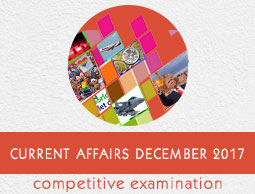
- Appointments
- Awards
- Books & Authors
- Committees
- Deaths
- Defence
- Economic
- Environment
- Finance
- Important Days
- International
- Miscellaneous
- National
- Persons in NEWS
- Places in NEWS
- Regional
- Reports
- Resignations & Retirements
- Science & Technology
- Sports
- December 2017 - Exams Resources
- Current Affairs - Quiz
- Current Affairs - Test
- Current Affairs - PDF
Current Affairs December 2017 - Finance
1 - Corporation Bank launched RuPay Credit Cards
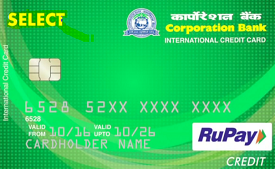
RuPay Select and RuPay Platinum credit cards variants were launched by Corporation Bank in Mangaluru to boost digital payments and lessen cash use by customers. Credit card variants will be accepted at all RuPay-enabled 1.5 million plus POS terminals and 80,000 plus e-commerce merchants. RuPay Select credit card offers lounge access, cover of 10 lakhs and cash backs whereas RuPay Platinum Credit Card offers cash back and insurance of 2 lakhs. Union Bank of India was first Bank to launch these variants in union with NPCI.
2 - Reserve Bank of India kept repo rate unchanged at 6%
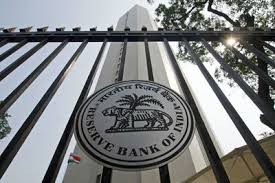
The 6-member Monetary Policy Committee headed by Reserve Bank of India Governor Urjit Patel kept the repo rate unchanged at 6% after its monetary policy review. The reverse repo rate was kept at 5.75%. The Reserve Bank said the reason for the decision was achieving the medium-term target for consumer price index inflation of 4%, while supporting growth. The RBI raised its inflation estimate to 4.3 to 4.7% for the second half of the current fiscal.
3 - EPFO opened new facility for over 4.5 crore members

The Employees' Provident Fund Organization, EPFO, has opened a new facility for its over 4.5 crore members that will allow consolidation or merger of their multiple PF accounts with the current Universal Account Number, UAN. Under this facility, subscribers of the EPFO can merge as many as 10 previous accounts with their UAN at one go with an objective of having one employee, one EPF account. The subscribers will have to provide their current activated UAN, member ID (identification) and mobile number registered at the UAN portal.
4 - Government roped in ICICI Bank to enable cashless payments on e-NAM

The government has roped in ICICI Bank to enable online payments at 470 mandis integrated with the national portal of electronic National Agriculture Market (e-NAM). Presently, e-NAM participants are doing payments through traditional ways via bank branches, debit cards and net banking. ICICI Bank will enable BHIM (Bharat Interface for Money) and Unified Payments Interface (UPI) on the e-NAM portal for making cashless payments. NAM is a pan-India electronic trading portal which networks the existing APMC mandis to create a unified national market for agricultural commodities.
5 - Paytm launched 'Paytm Ka ATM' partner outlet for banking operations

Paytm Payments Bank launched Paytm Ka ATM outlets. These specially branded outlets will allow customers to open savings account and deposit/withdraw money. In the first phase, 3,000 Paytm Ka ATM points in select cities including Delhi NCR, Lucknow, Kanpur, Allahabad, Varanasi and Aligarh will be opened. Another 100,000 Paytm Ka ATM banking outlets across India will be opened at the cost of ?3000 Cr over the next three years to expand offline distribution network. It is done with an aim to promote financial inclusion.
6 - BSEs India INX received SEBI nod for listing of debt securities

BSE's India International Exchange received SEBIs nod on the framework for listing of debt securities. With this approval, India International Exchange became first Indian exchange to offer clearing and settlement of debt securities through International Central Securities Depositories. Indian and foreign issuers at GIFT city will be allowed to issue masala bonds, Eurobonds and foreign currency bonds from India INX. India INX is Indias first International Exchange set up at GIFT City (Gujarat International Finance Tec-City), that offers international investors and Non-Residents Indians to trade from anywhere across the globe.
7 - RBI raised FPI Limit in G-Secs and State Development Loans

The Reserve Bank of India has raised the limits for investment by foreign portfolio investors (FPIs) for the January-March 2018 quarter by Rs 6400 crore in Central Government Securities (G-Secs) and ?5,800 crores in State development loans (SDLs). Beginning January 1, 2018, the revised investment limit for FPIs in G-Secs will be ?2,56,400 crores against the existing limit of ?2,50,000 crores. The revised investment limit for FPIs in SDLs will be ?45,100 crores against the existing limit of ?39,300 crores.
8 - US Federal Reserve raised interest rates by 0.25% again
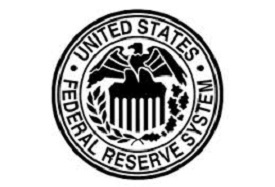
The US Federal Reserve raised its interest rates by 0.25%, the third rate rise this year. The US Policymakers also boosted their economic forecasts, projecting 2.5% growth in GDP in 2017 and 2018.The Fed is also expected to make three further increases in rates next year, unchanged from its previous forecast. The Fed is targeting a range of 1.25% to 1.5% for its benchmark rate. It is believed that interest rates are on track to exceed 2% in 2018.
9 - Government to bear MDR charges on transactions up to Rs 2000 made through debit cards

The government has decided to bear the Merchant Discount Rate (MDR) charges on transactions up to 2,000 rupees made through debit cards, BHIM UPI or Adhaar-enabled payment systems to promote digital transactions. The MDR will be borne by the government for two years with effect from 1st of January, 2018 by reimbursing the same to the banks. It is estimated that the MDR to be reimbursed would be 1,050 crore rupees in 2018-19 and 1,462 crore rupees in 2019-20.
10 - RBI imposed Rs 3 crore penalty on IndusInd Bank
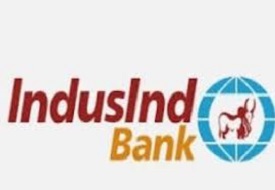
The Reserve Bank of India (RBI) has imposed a monetary penalty of Rs. 30 million on IndusInd Bank Limited (the bank) for non-compliance with the directions issued by RBI on Income Recognition and Asset Classification (IRAC) norms and contravention of regulatory restrictions pertaining to non-fund based (NFB) facilities. The statutory inspection of the bank with reference to its financial position as on March 31, 2016 revealed, inter alia, violations of various regulations issued by RBI in the assessment of Non-Performing Assets (NPAs) and extension of NFB facilities.
11 - RBI imposed PCA on Corporation Bank
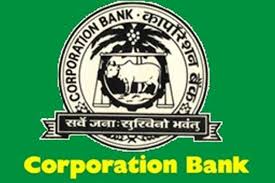
RBI has triggered Prompt Corrective Action against Corporation Bank and imposed certain restrictions on it due to high non-performing loans above 10%. RBI has earlier placed restrictions on 7 banks which include Oriental Bank of Commerce, Dena Bank, Central Bank of India, IDBI Bank, Indian Overseas Bank, Bank of Maharashtra and UCO Bank. Once RBI initiates PCA against a bank, it cant open branches, recruit staff, or give employee increments, and can disburse loans only to companies with borrowing above investment grades.
12 - Nearly Rs. 52,000 Crore Capital infused in PSBs under Indradhanush Plan

The Government has infused Rs. 51,858 crores in PSBs and allocated a sum of Rs. 22,915 in 13 PSBs during the FY 2016-17 under first tranche of capital infusion out of which a sum of Rs. 16,414 (75%) was infused upfront and the remaining amount was to be infused based on the performance of the respective banks. GoI proposed to make available Rs. 70,000 crores out of budgetary allocations for infusing capital in Public Sector Banks (PSBs). Amounts of Rs. 25,000 crores each in the financial years 2015-16 and 2016-17, and Rs. 10,000 crores in financial years 2017-18 and 2018-19, were envisaged.
13 - EPFO launched online facility to obtain COC
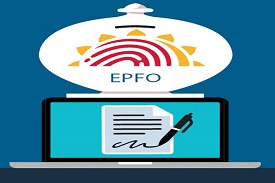
Employees Provident Fund Organization (EPFO) has launched an online facility to obtain Certificate of Coverage (COC). This facility is available to Indian workers who are deputed by their employer to the countries with whom India has entered into a Social Security Agreement (SSA) and they take Certificate of Coverage (COC) from EPFO. India has entered into Social Security Agreements (SSAs) with 18 countries −
(i) Australia, (ii) Austria, (iii) Belgium, (iv) Canada, (v) Czech Republic (vi) Denmark, (vii) Finland, (viii) France, (ix) Germany, (x) Hungary, (xi) Japan (xii) Republic of Korea (South Korea), (xiii) Luxembourg, (xiv) Netherlands, (xv) Norway, (xvi) Portugal, (xvii) Sweden and (xviii) Switzerland.
14 - J&K Bank launched Sahafat Finance Scheme
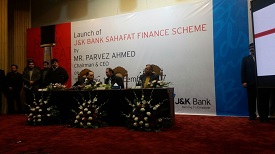
Jammu and Kashmir Bank became the first bank to launch a special financial scheme, Sahafat Financial Scheme, for journalists of the state. As a part of the scheme, the bank will extend maximum credit of Rs 3 lakh repayable in 60 EMIs to media persons for personal and professional needs on urgent basis. The loan shall be in form of term loan for purchase of cameras, tablets, laptops and revolving cash-credit facility to meet routine money needs. The scheme offers an insurance cover of Rs 4 lakh against an annual premium of Rs 342.
15 - UIDAI temporarily suspends Airtels Aadhaar-linked e-KYC services
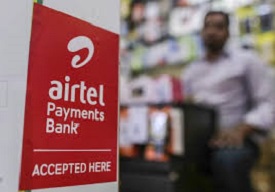
UIDAI has temporarily suspended Bharti Airtel and Airtel Payments Bank from conducting Aadhaar linked e-KYC verification of SIM cards and bank clients following allegations of Bharti Airtel using the Aadhaar-eKYC based SIM verification process to open payments bank accounts of its subscribers without their 'informed consent'. More than 23 lakh customers have reportedly received as many as Rs 47 crore in their Airtel bank accounts, which they did not know had been opened.
16 - ED freezes assets worth Rs 245cr in STC scam case
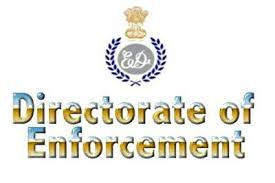
The Enforcement Directorate (ED) has frozen assets worth Rs 245 crore in connection with its money laundering probe in the alleged fraud of Rs 2,200 crore with the State Trading Corporation (STC). State Trading Corporation had granted financing facility to Global Steel Holding Limited for purchase of raw material for their Philippine-based steel plants on cash and carry basis. The Global Steel Holding Limited and its promoter Pramod Kumar Mittal defaulted on repayment to the tune of Rs. 2,200 crore.
17 - RBI imposed Rs 5 crore penalty on Syndicate Bank
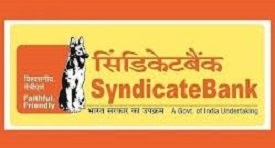
The Reserve Bank of India has imposed a monetary penalty of Rs 5 crore on Syndicate Bank for non-compliance with its directions on "Cheque Purchase or Discounting, Bill Discounting, and Know Your Customer (KYC)" norms. Recently, RBI had fined IndusInd Bank Rs 2 crore for non-compliance of asset recognition norms. The regulator had penalised Union Bank of India, Yes Bank and IDFC Bank with Rs 2 crore, Rs 6 crore and Rs 2 crore respectively.
18 - ICRA launched Fixed Income Indices for Debt Markets
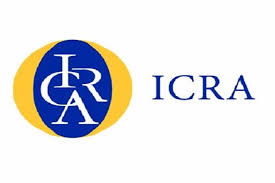
ICRA Management Consulting Services (IMaCS) has launched a set of four fixed income indices - ICRA Gilt Indices, ICRA Liquid Indices, ICRA Corporate Bond Indices and ICRA Composite Debt Indices. The ICRA Gilt Indices include short term, medium term, long term and composite gilt as well as 10-year gilt indices. ICRA Liquid Indices aim to represent the performance of the short-term securities with maturity up to 91 days. IMaCS is an arm of ICRA. ICRA Limited (ICRA) is an Indian independent and professional investment information and credit rating agency.
19 - RBI placed Bank of India under PCA
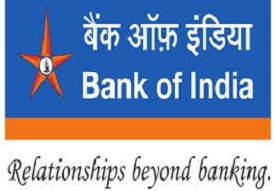
The Reserve Bank of India has placed Bank of India (BoI) under the prompt corrective action (PCA) framework in view of high net NPA, insufficient CET1 Capital and negative Return on Assets for two consequent years. As on end of March-17, BoI had net non-performing assets (NNPA) of 6.90 per cent; common equity tier (CET) - tier I capital of 7.17 per cent; and return on average assets (RoAA) of -0.24 per cent (in FY17) and -0.94 per cent (in FY16). The MD & CEO of Bank of India is Dinabandhu Mohapatra.
20 - Competition Commission of India approved merger of IndusInd Bank and Bharat Financial Inclusion
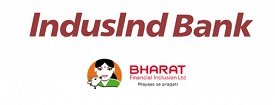
The Competition Commission of India has approved merger of IndusInd Bank and Bharat Financial Inclusion. However, the amalgamation is subject to the receipt of approval from the RBI and regulatory approval, including approval of the stock exchanges, SEBI, the National Company Law Tribunal and respective shareholders. BFIL had a customer base of 68 lakh and loan portfolio of Rs. 7,709 crore as of June 30. For 2016-17, the company had recorded a profit of Rs. 290 crore.
21 - AU Small Finance Bank collaborated with Sahaj e-Village
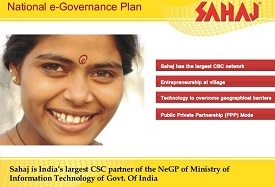
AU Small Finance Bank has signed a Memorandum of Understanding with Sahaj e-Village for extending its banking service in remote areas through Business Correspondent Agent (BC) model. As a part of the MoU, Sahaj Agents will gather information, counsel and provide customized products and services to customers in the interior locations where the Bank does not have a presence. Sahaj e-Village Limited is a venture initiative of SREI Infrastructure Finance Limited (SIFL) under the flagship of NeGP of the Government of India.
22 - YES Bank and EIB to Co-finance $400 mn for Clean Power Projects
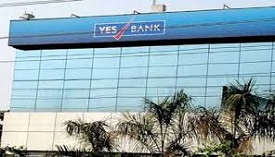
Yes Bank and the European Investment Bank will co-finance $400 million (Rs2,561 crore) funding for renewable power generation in the country. Of the $400-million, the EIB will fund $200 million. The EIB loan of $200 million has a tenor of 15 years. Several solar projects in Rajasthan, Maharashtra and Karnataka have been identified under the renewable power generation initiative. The MD and CEO of Yes Bank is Rana Kapoor while the President of European Investment Bank is Werner Hoyer.
23 - IMF and WB released the Financial System Stability Assessment and Financial Sector Assessment
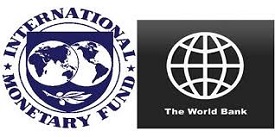
IMF and WB released the Financial System Stability Assessment (FSSA) and Financial Sector Assessment (FSA) respectively on their websites. India welcomed assessment of the Indian financial system undertaken by the joint IMF-World Bank team conforming to the highest international standards. The Second comprehensive FSAP has now been successfully conducted for India in 2017. FSAP, a joint program of the International Monetary Fund (IMF) and the World Bank (WB involved in developing countries and region only), undertakes a comprehensive and in-depth analysis of a countrys financial sector.
24 - RBI placed United bank of India under PCA
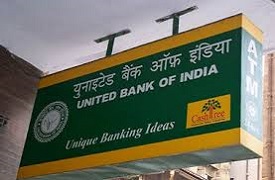
Reserve Bank of India kept United Bank of India under the prompt corrective action (PCA) framework on basis of weak balance sheets. Prompt corrective action has been applied by RBI for the improvement of bank in areas such as risk management, asset quality, profitability, efficiency etc. Other banks who have also been applied prompt corrective action are Bank of India, Central Bank of India, IDBI Bank, UCO Bank, Dena Bank, Oriental Bank of Commerce, Indian Overseas Bank, Bank of Maharashtra and Corporation Bank.
25 - Government Mint launched first home-grown high purity gold reference standard

The India Government Mint, Mumbai, has launched first home-grown high purity gold reference standard of the nation called as the Bharatiya Nirdeshak Dravya (BND-4201). It is the reference material for gold of 9999 fineness (gold that is 99.99% pure). IGM has developed BND-4201 in collaboration with Bhabha Atomic Research Centre -- National Centre for Compositional Characterisation of Materials (Hyderabad), and Council of Scientific & Industrial Research-National Physical Laboratory (New Delhi).
26 - Quikr acquired HDFC's digital, realty units
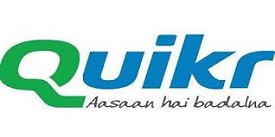
Quikr has acquired HDFC Realty and HDFC Red in an all-stock deal. HDFC picked up around 3.5% stake in Quikr for the two businesses, collectively valued at about Rs 357 crore. In the recent past, Quikr has acquired Salosa, Stayglad and ZapLuk in the home services segment, Commonfloor and Grabhouse in the real estate segment, Hiree in the recruitment segment and Stepni in the automobile services segment.
27 - State-Run Banks' bad loans crossed Rs 7.34 Lakh Crore

At the end of 2nd quarter of 2017-18, non-performing assets were reported to be Rs 7.34 lakh crore by major state run banks. State Bank of India reported highest amount of bad loans with Rs 1.86 lakh crore, followed by Punjab National Bank at Rs 57,630 crore, Bank of India at Rs 49,307 crore, Bank of Baroda at Rs 46,307 crore and Canara Bank at Rs 39,164 crore. Corporate defaulters form a major part of bad loans. Government is constantly in process of making out ways for reducing bad loans and increasing number of debt recovery tribunals.
28 - SLCM ties up with HDFC Bank, IndusInd Bank for collateral management

Sohan Lal Commodity Management (SLCM) has tied up with HDFC Bank and IndusInd Bank to provide collateral management services. With this, farmers will have more access to post-harvest credits at affordable interest rates. It will help for easy access to scientific storage facilities leading to a fair price discovery of their produce in the market. SLCM has a presence across 17 states in India with a network of 2,100 warehouses. They have a reliable scientific management system for over 725 commodities.
29 - Samsung in partnership with Axis Bank offers 'Bill Payments' on Samsung Pay

Samsung India has launched Bill Payments on its flagship payments service Samsung Pay in partnership with Axis Bank. The new feature will enable Samsung Pay users to pay their utility bills seamlessly using Samsung Pays secure and convenient platform. Bill payment through Samsung Pay comes with a host of unique features and offers users a secure, hassle free and instant payment option on-the-go. It is facilitated by NPCIs Bharat Bill Payments System (BBPS).
30 - Government cuts small savings interest rate by 0.2% points

The government cut the interest rate on small savings schemes, including public provident fund (PPF), national savings certificate (NSC) and Kisan Vikas Patra, by 0.2% for the January to March quarter. However, the five-year Senior Citizens Savings Scheme will continue to earn 8.3% per annum. PPF and NSC will all earn 7.6% while KVP will yield 7.3% and will mature in 11 months. Sukanya Samriddhi Account will offer 8.1% as against 8.3%. Term deposits of 1-5 years will fetch a lower interest rate of 6.6-7.4%, to be paid quarterly, while the five-year recurring deposit is pegged at 6.9%.
31 - SIDBI launched Udyami Mitra Portal
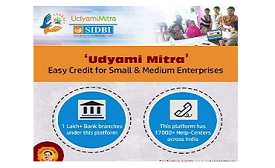
Small Industries Development Bank of India (SIDBI) has launched the Udyami Mitra Portal (www.udyamimitra.in) to improve accessibility of credit and handholding services to Micro, Small and Medium Enterprises (MSMEs). Scheduled Commercial Banks (SCBs) have been advised to ensure a target of 7.5% of Adjusted Net Bank Credit (ANBC) for Micro Enterprises, that collateral security is not required for loans upto Rs. 10 lakh to MSE sector, a simplified working capital requirement for MSEs.
32 - Insurance Regulator permits foreign insurers to open offshore business at GIFT IFSC
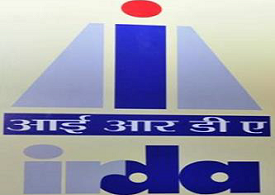
The Insurance Regulatory Development Authority of India (IRDAI) has permitted foreign insurers for undertaking offshore insurance business from International Financial Services Centre (IFSC), at Gujarat International Finance Tec City (GIFT). Foreign insurers can now open IFSC Insurance Offices (IIO) at GIFT IFSC. Foreign direct insurers and re-insurers are permitted to open office to undertake dollar-denominated business from within the IFSC in GIFT SEZ, all other Special Economic Zones in India, and foreign countries (including foreign to foreign, India to foreign and foreign to India).
33 - SBI Board approves raising Rs. 8,000 crores

State Bank of India has approved raising Rs. 8,000 crores through various sources, including masala bonds, to meet Basel III capital norms. The bank has time till March 2018 to raise the funds. Masala bonds are rupee denominated specialized debt instruments that can be floated in overseas markets only to raise capital. Banks in India have to comply with the global capital norms under Basel III by March 2019, three months later than the internationally agreed time frame by January 2019.
34 - Government raised Rs. 14,500 crores through BHARAT 22 ETF

The government has raised Rs 14,500 crore through the Bharat-22 Exchange Traded Fund (ETF). The ETF saw bids of nearly Rs 32,000 crore, with FIIs bidding for one-third of the money. The portion reserved for retail investors was subscribed 1.45 times; retirement funds by 1.50 times and NIIs and QIBs by 7 times. The Index is a unique blend of shares of key CPSEs, Public Sector Banks (PSBs) and also the Government owned shares in blue chip private companies like Larsen & Tubro (L&T), Axis Bank and ITC.